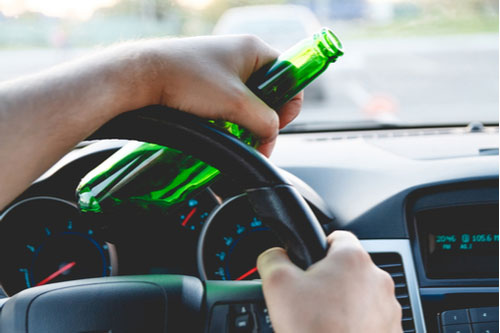Implied Consent Law in Indiana: What Drivers Need to Know
At Rathburn Law Office P.C., P.C., we are dedicated to providing strong, results-driven legal representation for clients facing DUI charges in Indiana. Our team of experienced attorneys focuses on protecting your rights, defending your driving privileges, and guiding you through every step of the legal process. We combine knowledge of Indiana’s laws with practical courtroom experience to deliver clear, effective, and professional defense strategies tailored to your case.
If you’re pulled over for suspected drunk driving in Indiana, you may be asked to take a chemical test to determine your blood alcohol concentration (BAC) or the presence of drugs in your system. Under Indiana’s implied consent law, by simply driving on the state’s roads, you agree to submit to these tests when requested by law enforcement. Refusing to comply can lead to serious legal consequences, including a suspended driver’s license and potential criminal charges. Understanding the key aspects of this law can help you make informed decisions if you’re ever faced with a DUI arrest.
In this blog, we will explore the details of Indiana’s implied consent law, the consequences of refusing a chemical test, and why working with an experienced Indianapolis DUI defense attorney is crucial if you’re facing a DUI arrest.
What is Implied Consent Law?
Implied consent law is a legal requirement for drivers to submit to chemical tests if suspected of driving under the influence of alcohol or drugs. In Indiana, refusing to take a test can lead to significant penalties.
Definition of Implied Consent Law
Implied consent law means that by driving in Indiana, you automatically agree to take a chemical test if law enforcement suspects you of drunk driving. This includes breath, blood, or urine tests, which are used to measure your blood alcohol concentration (BAC).
Legal Basis in Indiana
In Indiana, implied consent law is outlined in Indiana Code § 9-30-6-1. This law applies when a police officer has probable cause to believe you are driving under the influence of alcohol or drugs. By operating a motor vehicle on public roads, you consent to submit to these tests when requested by law enforcement.
Types of Chemical Tests
There are three main types of chemical tests used under implied consent law:
- Breath Test: Often administered using a breathalyzer, it measures your BAC from your breath.
- Blood Test: A blood sample is taken to detect alcohol and drugs.
- Urine Test: Typically used to detect drugs, such as marijuana or cocaine, in your system.
Consequences of Refusing the Test
Refusing to take a chemical test in Indiana can result in:
- Driver’s License Suspension: A refusal can lead to a suspension of your driving privileges for a minimum of one year.
- Criminal Penalties: Refusing a test can be used as evidence against you in a DUI case and may increase the likelihood of a conviction.
Why It Matters
Implied consent laws are designed to deter drunk driving and help law enforcement ensure that drivers are sober. Understanding this law and the consequences of refusal can help you avoid unnecessary legal and administrative penalties.
The Process of Implied Consent: What Happens After a DUI Arrest?
After a DUI arrest in Indiana, the implied consent law dictates the steps that follow regarding chemical testing. Here’s a breakdown of the process and what you can expect.
Step 1: Officer’s Observations and Establishing Probable Cause
Before requesting a chemical test, law enforcement must establish probable cause that you are driving under the influence. This could be based on signs such as erratic driving, the smell of alcohol, or failing a preliminary breath test (PBT). The officer’s observations play a key role in justifying the request for a chemical test.
Step 2: The Request for a Chemical Test
Once probable cause is established, a police officer will request that you submit to a chemical test. This can be a breath, blood, or urine test. The request is made to determine your BAC or to detect drugs in your system. You are legally required to comply with the test if asked.
Step 3: Consent or Refusal
If you agree to the test, it will be administered. A breath test is commonly done on-site, while blood and urine tests are typically taken at a police station. If you refuse, it can lead to serious consequences, such as a license suspension and criminal penalties.
Step 4: Consequences of Refusal
Refusing a chemical test in Indiana can result in automatic penalties. These include a suspension of your driver’s license for at least one year. In addition, your refusal can be used as evidence in court, which may increase the chances of a DUI conviction.
Step 5: Test Results and Legal Implications
If you submit to a chemical test, the results will determine whether you are under the influence. If your BAC is over the legal limit of 0.08%, you may face criminal penalties and DUI charges. These results are used in your defense or prosecution in court.
What Happens If You Refuse to Take the Test?
Refusing to take a chemical test after a DUI arrest in Indiana can have serious consequences. Here’s what you need to know if you choose not to submit to the test.
Driver’s License Suspension
If you refuse to take a chemical test, Indiana law mandates an automatic suspension of your driver’s license. The suspension period can last from one to two years, depending on whether it is your first offense or a subsequent refusal. This penalty is imposed even if you are not convicted of DUI.
Criminal Penalties
Refusal to take a chemical test can be used as evidence in your DUI case. The prosecution may argue that you refused the test because you were trying to hide your level of intoxication. This can strengthen the case against you and increase the likelihood of a DUI conviction.
Increased Risk of DUI Conviction
Refusal may make it harder to defend against DUI charges in court. Without the test results to challenge, the prosecution may rely more heavily on other evidence such as the officer’s observations and your behavior. This could lead to a higher risk of conviction.
Ignoring Your Rights
When arrested for DUI, you have the right to be informed about the consequences of refusing a chemical test. However, even if you decline, the legal consequences still apply. Understanding these penalties ahead of time can help you make an informed decision during your arrest.
Testing Methods: What You Can Expect
After a DUI arrest in Indiana, law enforcement may ask you to submit to one of several chemical tests to determine your BAC or detect drugs.
Breath Test
The most common method used by law enforcement is the breath test. Typically administered using a breathalyzer, this test measures the alcohol content in your breath to estimate your BAC. If your BAC is 0.08% or higher, you can face DUI charges in Indiana.
Blood Test
If you refuse the breath test or the officer suspects that drugs may be involved, a blood test may be ordered. A blood test provides a more accurate reading of BAC and can also detect drugs in your system. This test is usually administered at a police station or medical facility.
Urine Test
In certain cases, such as when drugs are suspected, a urine test may be required. The urine test can detect the presence of substances like marijuana, cocaine, and other controlled drugs. However, urine tests are generally less reliable for determining BAC compared to breath and blood tests.
On-Site vs. Police Station Testing
Breath tests can often be administered on-site, such as at the scene of the traffic stop. However, blood and urine tests typically require you to be taken to a police station or medical facility for collection. The location and type of test may vary depending on the officer’s observations and the circumstances of the arrest.
Protect Your Rights with Rathburn Law Office P.C., P.C.!
If you are facing a DUI arrest or have questions about implied consent law, reach out to our team at Rathburn Law Office P.C., P.C. Our experienced Indianapolis DUI defense attorneys will guide you through the legal process, protect your driving privileges, and work to achieve the best possible outcome in your case.
Contact us at 800-800-8000 for a free case consultation today!










